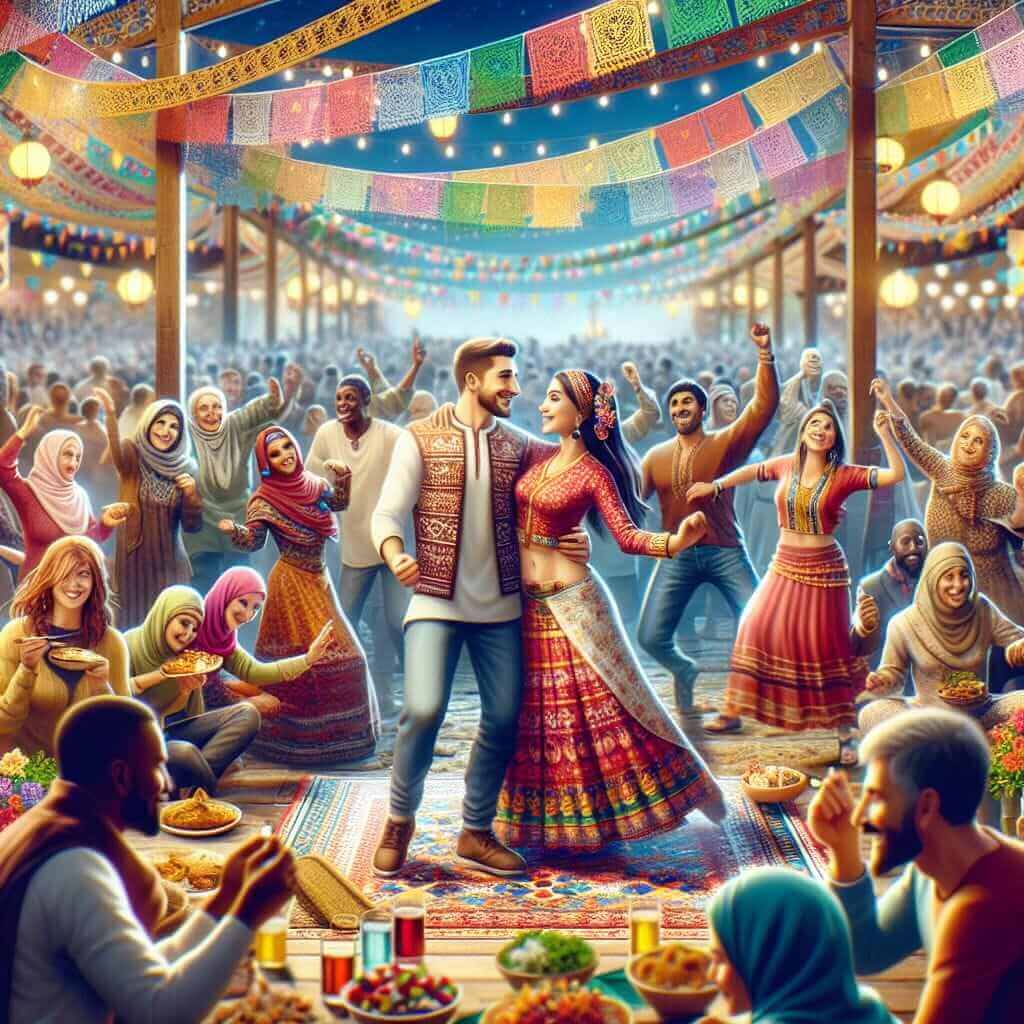The IELTS Speaking test is divided into three parts: Introduction and Interview, Long Turn, and Two-way Discussion. With each part, the examiners assess four main criteria: Fluency and Coherence, Lexical Resource, Grammatical Range and Accuracy, and Pronunciation. When it comes to describing cultural experiences, such as “a time when you experienced a cultural festival,” candidates are expected to demonstrate depth and clarity in their responses. Questions about cultural festivals are common as they reveal one’s exposure to different cultures and ability to articulate these experiences.
In this guide, we’ll delve into the specifics of handling this topic across the different parts of the Speaking test, providing sample questions, responses, and valuable vocabulary to ensure you’re well-prepared.
Part 1: Introduction and Interview
Common Questions and Suggested Answer
Question: Have you ever attended a cultural festival?
Suggested Answer:
Yes, I have attended a cultural festival. Last year, I had the opportunity to participate in the Lunar New Year festival, also known as Tết, in Vietnam. It was a fascinating experience that allowed me to immerse myself in the local culture, traditions, and cuisine.
Analysis
For Part 1, the questions are generally straightforward and personal. Your responses should be concise but informative. Mentioning specific details like the name of the festival and where it took place can help you score higher on Fluency and Coherence.
Part 2: Long Turn
Cue Card
Describe a time when you experienced a cultural festival.
You should say:
- What the festival was
- Where it was
- Who you went with
- And explain how you felt about it
Suggested Answer
One memorable experience I had was attending the Chinese New Year festival in Beijing, China. This festival, also known as Spring Festival, is a significant cultural event that marks the start of the Lunar New Year. I went there with my friend, who is originally from China and wanted to introduce me to her culture.
We participated in various activities such as lion dances, dragon parades, and paper lantern displays. The streets were beautifully decorated with red lanterns and banners, symbolizing good luck and prosperity. I also had the chance to try traditional Chinese dishes like dumplings, Peking duck, and mooncakes.
Overall, the experience was incredibly enriching. It allowed me to not only appreciate the vibrant traditions and customs of the Chinese people but also understand the importance of family and community in their celebrations. I felt a deep sense of cultural immersion and left with lasting memories and newfound respect for Chinese heritage.
Key Points
- Lunar New Year: Emphasizes understanding of global festivals.
- Lion dances, dragon parades: Specific activities enrich the detail.
- Red lanterns and banners: Symbolism in decorations.
Part 3: Two-Way Discussion
Common Follow-Up Questions and Suggested Answers
Question: Why do you think cultural festivals are important for society?
Suggested Answer:
Cultural festivals are essential as they foster community spirit, preserve traditions, and promote mutual understanding. They provide an opportunity for people to learn about different cultures, which enhances social cohesion and respect for diversity. By participating in such events, individuals can reconnect with their heritage and pass on these traditions to younger generations, ensuring that they continue to thrive.
Question: How do cultural festivals benefit the economy of a country?
Suggested Answer:
Cultural festivals significantly boost the economy through tourism. They attract visitors from around the world, generating revenue for local businesses, from hotels and restaurants to small vendors and artisans. Additionally, these festivals create temporary employment opportunities and can lead to long-term investments in the region’s cultural infrastructure.
Key Points
- Community spirit and mutual understanding: Highlights societal benefits.
- Economic boost through tourism: Economic advantages.
Vocabulary and Key Expressions
-
Cultural Immersion /ˈkʌltʃərəl ɪˈmɜːʃən/: Being deeply engaged in a culture.
- Example: “The cultural immersion at the festival was profound.”
-
Heritage /ˈherɪtɪdʒ/: Traditions, customs, and artifacts passed down through generations.
- Example: “Preserving our heritage is crucial for maintaining cultural identity.”
-
Prosperity /prɒˈspɛrɪti/: The state of being prosperous or financially successful.
- Example: “The festival symbolizes hope and prosperity for the new year.”
-
Social Cohesion /ˈsəʊʃəl kəʊˈhiːʒən/: The bond that brings society together.
- Example: “Festivals play a vital role in enhancing social cohesion.”
-
Traditions /trəˈdɪʃənz/: Customs or beliefs passed through generations.
- Example: “Understanding different traditions can bridge cultural gaps.”

Lời Khuyên
To excel in the IELTS Speaking test, practice regularly by recording and reviewing your answers. Focus on expanding your vocabulary and improving your pronunciation. Practice answering different types of questions and seek feedback from peers or tutors. Remember, clarity and confidence are key.
Incorporate the topics we discussed here into your practice sessions. Whether it’s about a cultural festival or any other subject, aim to convey your experiences vividly and accurately. This approach can significantly boost your performance in the IELTS Speaking test.